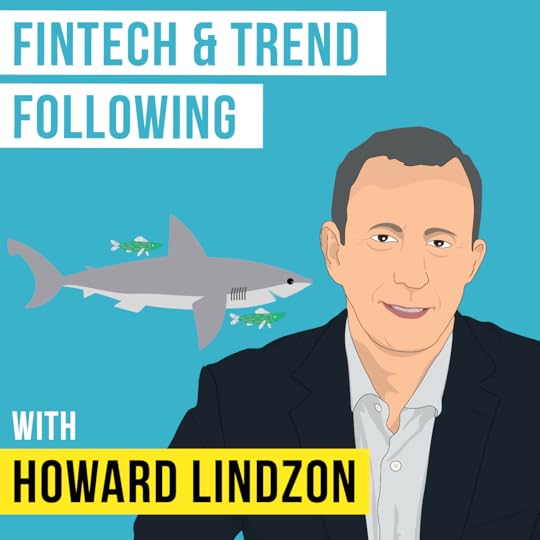Patrick O'Shaughnessy's Blog, page 11
January 22, 2019
My guest this week, Eugene Wei, has one of the mos...
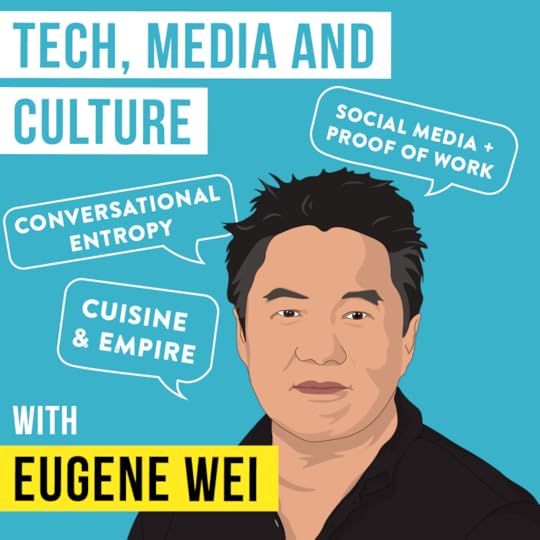
My guest this week, Eugene Wei, has one of the most
interesting backgrounds of anyone I’ve had on the podcast. He worked at Amazon
early in its life, was the head of product at Hulu and Flipboard, and head of
video and Oculus.
Our conversation is about the intersection of technology,
media, culture. We discuss Eugene’s concept of invisible asymptotes: why growth
slows down (for both companies and people) and how some can burst through. I’d
list more of the topics, but we covered so much that you should just listen.
Finally, I’ll say that after spending a day with Eugene
(including a wildly interesting dinner with Eugene, past podcast guest Sam
Hinkie, and future podcast guest Kevin Kwok) that he is the type of uniquely
interesting and kind person I am always searching for and one that I wish I
could bet on somehow. If you know more people like this, reach out and suggest
them for this podcast. Now, enjoy our conversation.
Show Notes
1:38 – (First Question) – Idea of cuisine and empire
1:52 – Cuisine
and Empire: Cooking in World History
4:20 – Key takeaways from the Defiant Ones Documentary
8;25 – Being convinced to buy a sports coat
11:10 – The concept of invisible asymptote
17:43 – How the medium shapes the messaging and the impact
of cameras everywhere on society
17:48– Invisible
asymptotes
17:56 – Selfies as a second language
22:57 – Proof of work in building a social network
32:51 – Magnification of inequalities in digital networks
34:01 – The
Lessons of History
36:47 – His thoughts on the media industry’s impact on
society as a whole
39:42 – His time at Hulu
44:48 – Places where video could replace text
47:30 – The need for media for any business looking to grow
49:35 – Amusing
Ourselves to Death: Public Discourse in the Age of Show Business
53:08 – Personal asymptotes
57:19 – Habit
building and goal setting
1:00:29 – Travel recommendations
1:03:24 – Movie recommendations
1:08:16 – Product recommendations and what makes them
indispensable
1:10:44 – Creation:
Life and How to Make It
1:13:23 – Thoughts on the art of conversation
1:14:59 – The
Most Human Human: What Artificial Intelligence Teaches Us About Being Alive
1:18:30 – Kindest thing anyone has done for Eugene
Learn More
For more episodes go to InvestorFieldGuide.com/podcast.
Sign up for the book club, where you’ll get a full investor
curriculum and then 3-4 suggestions every month at InvestorFieldGuide.com/bookclub
Follow Patrick on twitter at @patrick_oshag
January 15, 2019
Michael Duda – Investing In Brands – [Invest Like the Best, EP.117]
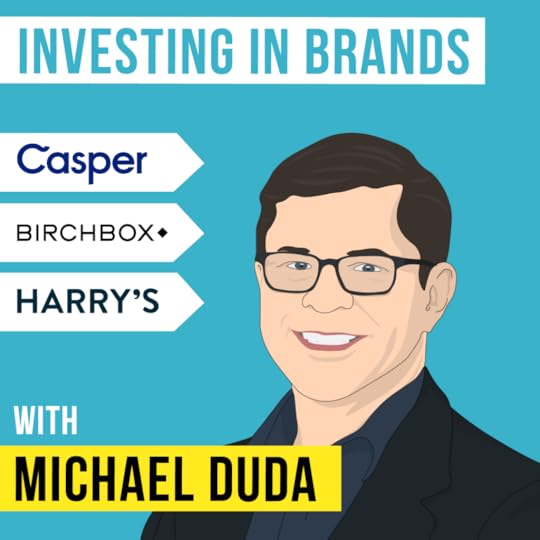
My guest this week is Michael Duda, and the topic of our
conversation is the role that brand plays in business and investing. Michael has worked on and invested in a wide-range
of brands including Birchbox, Casper, Harry’s, Citibank, DirecTV, Google,
TripAdvisor, Under Armour and vineyard vines. His background in advertising
made this a unique and interesting conversation. please enjoy.
Show Notes
1:11 – (First Question) – Mission of Bullish
2:15 – Typical relationship they have with companies
3:01 – Defining brand
4:35 – Ryan
Caldbeck Podcast Episode
5:51 – A dive into how brands make people feel
7:54 – Does the emphasis on brand still matter to consumers
and if so, where
10:01 – Process of building up a brand
14:53 – What has changed most in the planning of a brand
strategy
18:35 – How does his thinking impact his investing strategy
21:48 – Where does he differ from the rest of the market
23:34 – Advice he would give to companies in general
26:18 – How advertising has changed in the current landscape
28:35 – The screening process for picking potential
investments
35:16 – How they analyze valuation
37:31 – Unusual traits he likes in founders
40:12 – Categories most ripe for young companies to disrupt
44:03 – Most interesting marketing channel for direct to
consumer businesses
46:45 – Marketing piece he is most proud of
49:23 – Companies that embody the best of what has been
discussed
52:31 – His love for people in business
53:41 – Kindest thing done for Michael
January 8, 2019
Abby Johnson – Future of Finance – [Invest Like the Best, EP.116]
Over the summer. I spent time with Abby Johnson, who is the
chairman and CEO of Fidelity Investments and several other business leads at Fidelity
to understand how a very large firm like theirs is navigating change in our
industry. What follows is a condensed version of my various conversations with
Abby and her team. We discuss the big buzzwords like blockchain and machine
learning, but also thoughts on leadership, client centricity and measures of
success.
Show Notes
1:16 – (First Question) – [Abby] A look at the early part of
Abby’s career
2:45 – Analyzing the skill of capital allocators
3:27 – A look at the asset management world of today and
what to focus on today
7:23 – A set of decision-making principles that guide Abby
12:55 – Their strategy around the digitization of the world
16:07 – Balance between robo-advisors and humans and the
markers of a good relationship
18:24 – What is the future of the role of the human in these
relationships
20:15 – Their interest in emerging technologies like
Blockchain
24:50 – Will crypto be its own asset class in the future
25:58 – [TOM] State of the business and the most interesting
points of change
28:14 – Who is winning the battle for the next generation of
investors
29:24 – How much of the change in financial business is
cyclical
30:17 – What are businesses doing right to bridge that
generational gap
31:01 – What does the future of the asset management
industry look like
32:13 – What technologies could impact the asset management
business the most
33:44 – The difference between machine learning and AI in
this format
35:26 – In what way will AI impact these processes and
replace humans
36:41 – What has him most excited about the future
37:54 – Advice for people thinking about pursuing a career
in financial services
39:20 – Markers of a business that would be attractive for
the next generation to consider working for
40:33 – The importance of brand when thinking about their business
and those they work with
41:57 – Ways of engendering trust from a branding
prospective
43:20 – Kindest thing anyone has done for Tom
44:28 – [VIPIN] Building a team around AI
45:21 – Markers for a good data strategy
47:25 – Kindest thing anyone has done for Vipin
48:58 – [ABBY] – How Fidelity thinks about data as an
investing initiative
50:24 – Differentiating attributes of good analysts and if
they’ve changed
51:34 – Investor she has always enjoyed learning from
52:37 – Favorite Peter Lynch story
53:17 – Business lessons that people could take away from
Abby
54:59 – The role of women in financial services and what can
be done to improve the situation there
57:35 – Trends that Abby is most excited to explore
1:00:22 – Positives and negatives of being part of a family
business
1:01:46 – Kindest thing anyone has done for Abby
Learn More
For more episodes go to InvestorFieldGuide.com/podcast.
Sign up for the book club, where you’ll get a full investor
curriculum and then 3-4 suggestions every month at InvestorFieldGuide.com/bookclub
Follow Patrick on twitter at @patrick_oshag
December 18, 2018
Keith Rabois – If You Can’t Sell Them, Compete with Them – [InvestLike the Best, EP.115]

My guest this week is Keith Rabois. Keith is currently an
investment partner at Khosla Ventures, but has a storied and diverse background
as an investor, entrepreneur, and executive. He has worked in senior positions
at Paypal, LinkedIn, and Square; has led investments in companies like Stripe,
YouTube, Palantir, and AirBnB; and started the company OpenDoor, which aims to
transform the process of selling a home through technology.
One fun fact about Keith is that he may have the most
impressive list of bosses I’ve ever seen, which we discuss during the episode.
We cover a lot, but one thing we kept returning to was
business strategy. Keith’s frameworks for gaining and building strategic power
helped me clarify my thinking on the topic, and his examples of contrarian
thinking will hopefully make you question some commonly held beliefs.
Please enjoy our conversation.
For more episodes go to InvestorFieldGuide.com/podcast.
Sign up for the book club, where you’ll get a full investor
curriculum and then 3-4 suggestions every month at InvestorFieldGuide.com/bookclub.
Follow Patrick on Twitter at @patrick_oshag
Show Notes
1:35 (First Question)
– A look at his investing philosophy
3:16 – Favorite
examples of his own investment history
4:40 – 7
Powers: The Foundations of Business Strategy
5:07 – Understanding what is anomalous in a given investment
7:07 – How much a secret needs to be protected within a
business
11:51 – Why accumulating advantage with data is of interest
to Keith
15:12 – Digital health companies and ideas that he finds
compelling
16:17 – Nuance around financial services that investors
should be mindful of
17:56 – How do they evaluate managers ability to recruit
talent
19:36 – How similar are the roles of entrepreneur, board
member, investor, etc that Keith has had in his career
24:02 – Ways that Keith is a contrarian, including his
feelings on “lean startup.”
27:04 – Is problem identification a specific skill set
28:29 – Objection with experimentation/iteration
30:02 – Bad ideas in venture
31:36 – What he likes about Apple
31:51 – Creative
Selection: Inside Apple’s Design Process During the Golden Age of Steve Jobs
32:26 – Interview questions for identifying great talent
35:41 – Elements of good design
37:14 – Impact of platforms on opening new opportunities
38:42 – His take on valuation in the early stage environment
40:33 – Advice he would give people early in their careers
43:58 – Do high growth companies get beat by established
larger businesses
45:25 – Popular narratives that he thinks are just wrong
48:22 – His thoughts on how people should learn, balancing
experience vs information gathering
50:00 – Other investors that are taking a unique approach to
investing
51:57 – Reflecting on the entrepreneur as a client model of
private equity
55:04 – Books that he recommends that is least known
55:18 – The
Upside of Stress: Why Stress Is Good for You, and How to Get Good at It
56:30 – Kindest thing anyone has done for Keith
Learn More
For more episodes go to InvestorFieldGuide.com/podcast.
Sign up for the book club, where you’ll get a full investor
curriculum and then 3-4 suggestions every month at InvestorFieldGuide.com/bookclub
Follow Patrick on twitter at @patrick_oshag
December 11, 2018
Bryan Krug – High Yield Credit Investing [Invest Like the Best, EP.114]
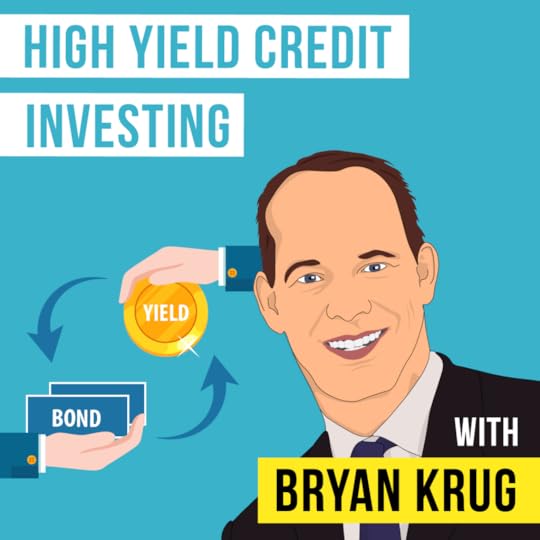
My guest today is Bryan Krug, who manages the Artisan
Partners Credit Team and overseas more than $3B in high yield credit
investments for the firm. This was my first conversation on high yield, so I
took it as an opportunity to get an overview on the investment universe and
home in on the tools used for analysis and security selection.
As an equity investor, I think one of the most fruitful
areas of research is into ways that companies fail or go wrong, and credit
investors focus almost entirely on this potential for impairment. My guess is
that all equity investors will learn something useful from this conversation.
Please enjoy.
Show Notes
0:00 – (First Question) – Components of a credit cycle
2:11 – Overview of the high yield debt markets
5:54 – Why should investors consider this investment class
8:00 – How analyzing a company’s debt is different from what
equity analysts look for
9:31 – Primary factors when exploring a company’s ability to
de-lever
10:32 – What is their alpha vs others in the space
12:51 – Deep dive into the quantitative factors for them to
look into a deal
15:14 – Benchmarks he uses
16:57 – Portfolio construction
18:04 – Their preference for broadband providers over cable
tv networks
20:50 – What piques his interest about spreads
22:39 – The ratings of debt
26:29 – A recent example of an opportunity and how the
mispricing was identified
30:06 – Most valuable data sets in this world
32:40 – Favorite part of this process
33:15 – Most surprising new learning
33:50 Maintaining your advantage
35:38 – The biggest pools of error in this industry
38:49 – What industries interest Bryan
41:39 – Dedication to this market
42:34 – Evolution of his healthy skepticism
43:27 – Can things in the debt market help to project what
will happen in the equity markets
45:45 – Current view of the world based on what is happening
in the credit markets
46:40 – Categories of convenience that he cares about
50:04 – Anything that has him worried in high yield markets
51:27 – Kindest thing anyone has done for Bryan
Learn More
For more episodes go to InvestorFieldGuide.com/podcast.
Sign up for the book club, where you’ll get a full investor
curriculum and then 3-4 suggestions every month at InvestorFieldGuide.com/bookclub
Follow Patrick on twitter at @patrick_oshag
December 4, 2018
Maureen Chiquet – Leadership Through Hard Conversations – [Invest Like the Best, EP.113]

My guest this week is Maureen Chiquet, the former longtime CEO of Chanel. Maureen also spent much of her career at the Gap, growing Old Navy from scratch, and serving as the president of Banana Republic.
The topic of discussion is her experience running large businesses and of finding one’s way in a career and as a leader of others.
I hope you enjoy this unique conversation and that it encourages you to, among other things, travel somewhere new and interesting in the coming year.
Show Notes
1:15 – (First Question) – The importance of being able to put yourself in other people’s shoes
3:05 – Scott Norton Podcast Episode
4:36 – Most memorable sale from her early career
5:03 – The intersection of facts and emotions in sales
6:40 – Most important emotions in business
7:30 – The importance of identity as part of the selling/marketing of sales and products
9:10 – Difference in strategy for luxury brands vs others
9:21 – The Luxury Strategy: Break the Rules of Marketing to Build Luxury Brands
10:55 – Striking a balance between tradition and innovation
13:46 – Advice for new brand company related to rarity
14:59 – Importance of being organic with your brand purpose
15:01 – Wild Company: The Untold Story of Banana Republic
16:26 – Maureen’s purpose over the years
18:44 – How to harness your purpose for your job
20:53 – Her process for writing and desire to do TV
24:01 – Her time with Micky Drexler
27:40 – As a leader, guiding people to succeed.
32:33 – Strategy for shifting culture at a company
37:54 – The importance of courageous conversations we should all be having
43:45 – Markers of courageous conversations
46:43 – How she thinks about introspection
50:12 – What draws here to certain locations
55:15 – Advice for younger people starting out their career
57:11 – Kindest thing anyone has done for Maureen
November 27, 2018
Hunter Walk – Building Picks and Shovels – [Invest Like the Best, EP.112]

My guest this week is Hunter Walk, the co-founder of Homebrew, a unique venture capital firm. Hunter is a tool builder, having spent his career before venture at companies like Google and YouTube. The topic of our conversation is the intersection of creative expression, technology, human behavior, and problem-solving.
We discuss his time at the company behind the video game Second Life, building tools for creators at YouTube, and why a very hands-on style of early-stage venture investing represents an interesting use of his skill set at this stage of his career.
Please enjoy my conversation with Hunter Walk.
Show Notes
1:24 – (First Question) – Background on Second Life and what role Hunter had there
6:10 – The virtual currency system at use in Second Life
9:51 – Measuring how people behaved in this virtual world
12:21 – How closely is the Second Life world mimicking real life
15:13 – The market for platforms that lets people take on creative ventures
17:58 – Investments that interest Homebrew
20:21 – Lessons learned while working at YouTube
28:34 – The idea behind Homebrew
33:44 – How to best describe good problems to solve for
36:10 – The Shadow economy and investing in companies operating there
42:17 – Monetization of attention
42:26 – List of categories they invest in
47:22 – His interest in fintech companies
47:41 – Saveet Singh Podcast Episode
54:03 – Major trends of change he’s observed over his first three funds
1:04:13 – What is there take on the state of returns for VC’s
1:09:52 – What is the most common way that founders need help and what advice is more helpful
1:14:35 – Kindest thing anyone has done for Hunter
November 13, 2018
Cliff Asness – The Past, The Present & Future of Quant [Invest Like the Best, EP.111]
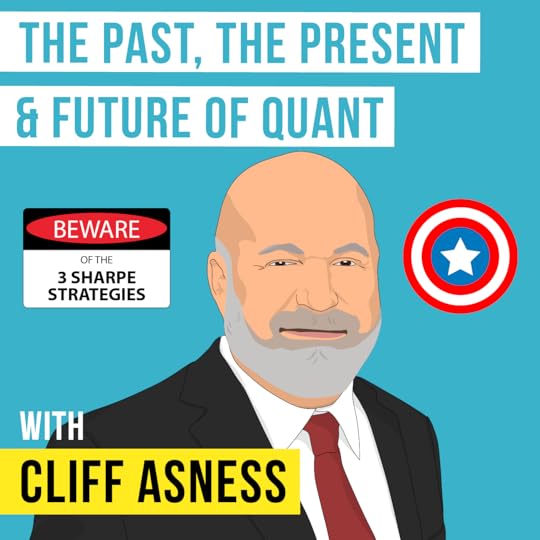
My guest this week is Cliff Asness, the managing and founding principal at AQR Capital Management. 20 years after its founding in 1998, AQR manages $226 Billion dollars across a number of quantitatively based investing strategies.
Cliff was an original quant researcher and he has long been one of the financial writers and thinkers that I look to for education and for inspiration.
I distinctly remember reading one paper in particular—value and momentum everywhere—somewhat early in my career and thinking: this is the kind of research I want to do forever.
You can always tell when talking to Cliff or hearing him speak that he just loves researching markets. There is a deep intellectual honesty in his work, and a respect for thinkers at different ends of the market spectrum, from Gene Fama and Ken French, to Jack Bogle, to Dick Thaler and Robert Shiller.
Our conversation is about all things quant—past, present, and future. Cliff touches on many of the big issues facing quant investing and tells some great strong along the way. I hope you enjoy our discussion. Let’s dive in.
Show Notes
1:47 – (First Question) – Favorite superhero
2:43 – Why ‘Ka nama kaa lajerama’ is part of his twitter profile.
3:38 – How portfolios have shifted the way they use factors in a portfolio
10:15 – What are good questions clients are asking right now
13:24 – Contrarian Factor Timing Is Deceptively Difficult
15:40 – Does technology impact investing strategy
22:14 – When to share information vs keep it proprietary for clients sake
26:40 – How their research process is governed
31:14 – How they will incorporate machine learning into their process
34:21 – What they will do when red flags show up
37:01 – Wackiest question from a client
41:47 – The Three Sharpe Ratio Strategy
41:53 – Liquid Alt Ragnarök
48:10 – Does his thinking change when it comes to asset allocation vs portfolio building
50:17 – Parallels Between the Cross-Sectional Predictability of Stock and Country Returns
53:01 – Sin a Little
57:14 – Trends in fees and pricing
1:02:43 – Thoughts on private equity markets
1:11:03 – Common attributes of really good researchers
1:13:21 – What is he most curious about right now
1:15:43 – What excites him outside of finance
1:17:00 – How much he discusses his work with his kids
1:18:35 – The Devil in HML’s details
1:19:36 – Kindest thing anyone has done for him
October 30, 2018
Ryan Caldbeck – Quant in Private Markets – [Invest Like the Best, EP.110]

My guest this week is Ryan Caldbeck, a private equity investor who wants to bring quantitative rigor to the private markets. Ryan is the CEO of Circle Up, which uses a system it calls Helio to identify attractive investments in early-stage consumer brands.
While I am of course a fan of quantitative investing, I also know from experience how much harder private markets are than public markets when it comes to the transactions themselves. We discuss this and many other potential roadblocks to bringing models to private markets.
Using many individual companies as examples, Ryan explains some of the major predictive factors they’ve uncovered in their research. We also discuss which parts of the private markets might be infiltrated by quant processes first, and which may never be.
I expect many more to go on a journey similar to Ryan’s in the years to come. They serve as an interesting example for ambitious investors out there.
Please enjoy our conversation.
Show Notes
1:39 – (First Question) – Formation of Helio
6:57 – How they handle the relationship building needed to make investments in private markets
10:26 – Why consumer and retail are interesting spaces to apply their quantitative approach in private markets
12:54 – Searching for new relevant data
16:14 – How do they stay ahead of the commoditization of uniqueness
16:21 – Pattern Recognition and Machine Learning
17:24 – Sam Hinkie Podcast Episode
18:00 – Dominant predictive factors in this world
21:05 – Which is more important, relative value or rate of change
21:48 – What does the data say about online sales vs offline (being in a store)
23:30 – Variable that consumer investors think matters but it doesn’t
24:53 – Valuing companies and accounting for mispricing’s
25:36 – Michael Recce Podcast Episode
26:41 – Goes through the process using Liquid Ivy as an example
28:46 – Most interesting sub-categories
29:33 – Future for this model
32:10 – Albert Wenger Podcast Episode
35:19 – Other categories outside consumer and retail interest Ryan
36:28 – Biggest challenges for CircleUp as a business
38:46 – Handicapping their earnings expectations
41:36 – Take on the VC/PE landscape
43:03 – The types of models that are most interesting to the team
45:05 – Quantitative elements of brand that are most interesting
47:30 – Most unique brand and distribution strategy he’s come across
53:27 – Who has influenced Ryan the most
54:37 – His personal values
55:51 – More people who had an influence on Ryan
56:05 – The Innovator’s Dilemma: The Revolutionary Book That Will Change the Way You Do Business
57:07 – Thoughts on goal setting at the company
59:29 – Unchangeable factors that shape their long-term vision
1:02:01 – Most interesting individual conversation as part of this journey
1:04:02 – If he could only keep one dataset, what would he keep
1:05:09 – kindest thing anyone has done for Ryan
October 23, 2018
Howard Lindzon – Fintech and Trend Following – [Invest Like the Best, EP.109]
My guest this week aspires to be the Larry David of investing, and we discuss why. Howard Lindzon is hard to categorize. He’s primarily an early stage investor right now, but he’s participated in all types of investing. He describes himself as a trend follower and always has a unique take on popular topics.
In this conversation, we cover his investing history and his take on the fintech investing landscape. What I’ll remember most is the idea that we should focus on what is happening versus what we think will happen or might happen. There is a Peter Lynch-like quality to some of Howard’s thinking, and a willingness to embrace the weird that I find very appealing. The few times I’ve met Howard, I’ve smiled or laughed most of the time, which is about as nice a thing as I could say about someone.
He’s a good example of why I like this podcast format. His investing style bears literally no resemblance to my own, but it got me thinking about a lot of new things. I hope you enjoy our chat.
Show Notes
0:00 – (First Question) – Why he wants to be the Larry David of investing
0:18 – Why his investing style is best described as trend following
2:23 – The biggest inspirations/influencers on Howard’s investing
4:57 – What made his second mentor, Fred Wilson such a great investor
8:10 – Formation of Wall Strip
10:51 – Why weird is so important in his investment philosophy
13:14 – Understanding his investment philosophy through his investment in Rally Road.
19:20 – His assessment of the fintech space
27:12 – Why fintech pushes away from human nature
29:08 – Major trends in fintech that have his attention
33:20 – What stands out about the teams at these companies he invests in
34:55 – Thoughts on fractionalization plays
35:02 – Capital Allocators podcast episode
35:12 – Venture Stories Podcast
38:21 – Any major trends that are changing and worth attention
40:24 – The Tipping Point: How Little Things Can Make a Big Difference
41:44 – His take on the media landscape
43:28 – Kindest thing anyone has done for him

